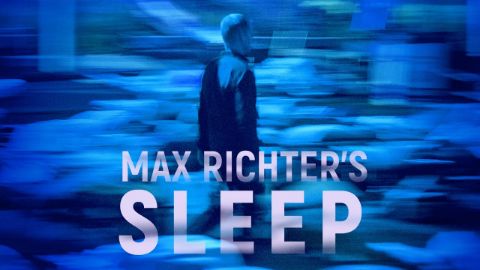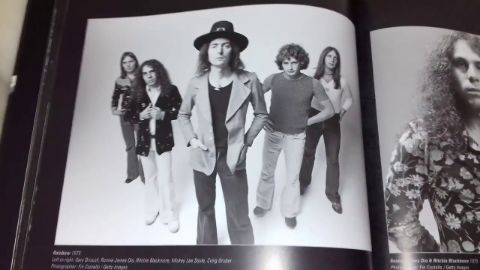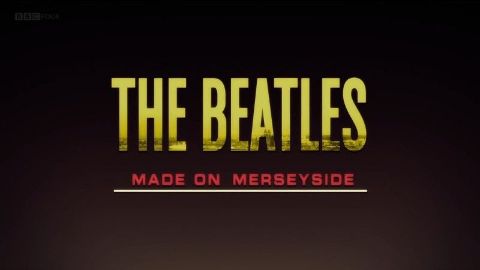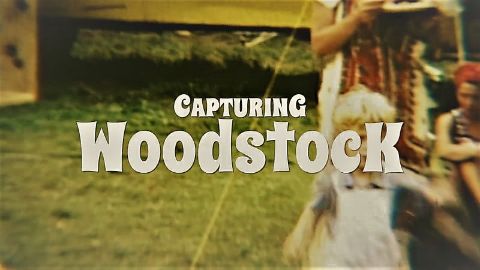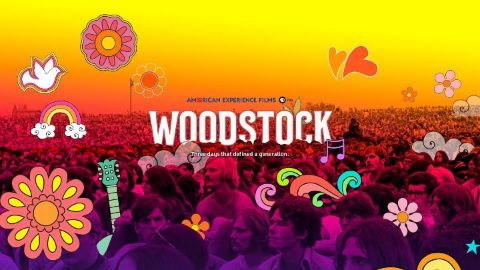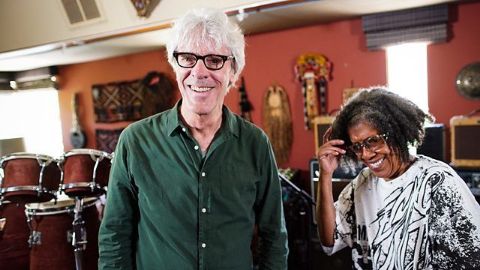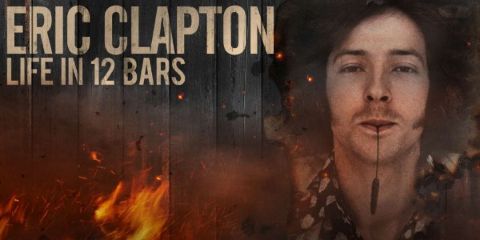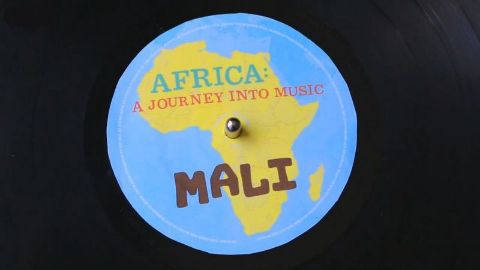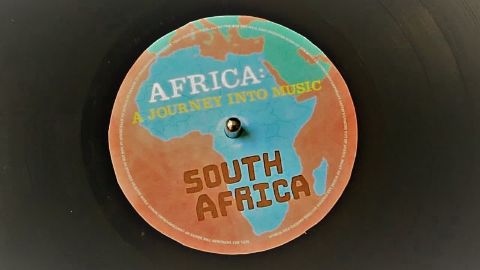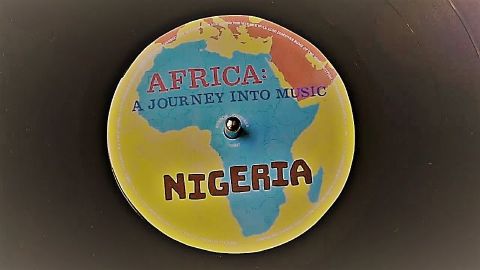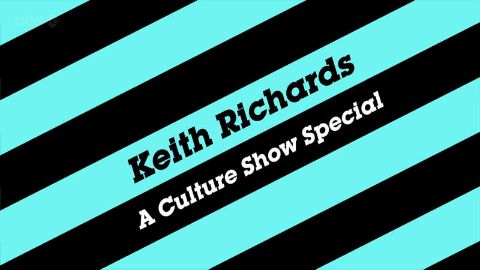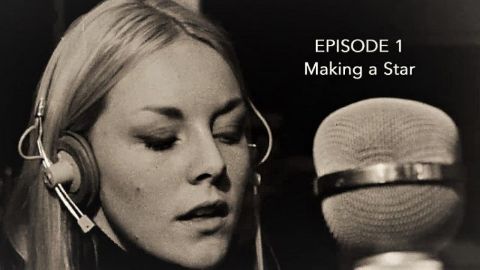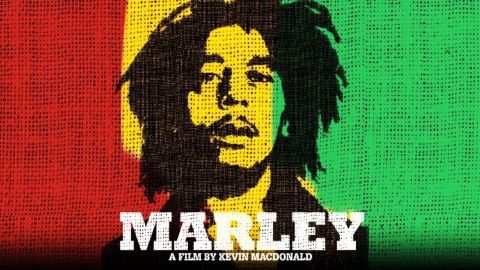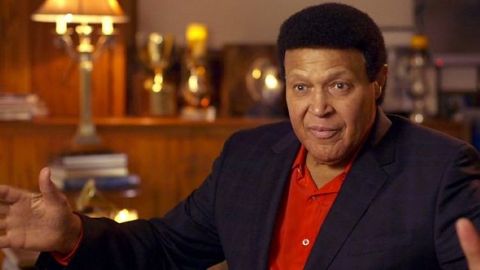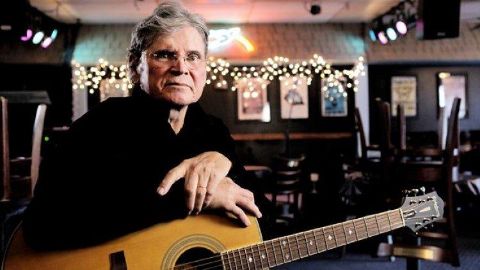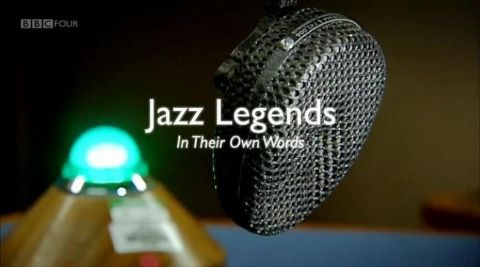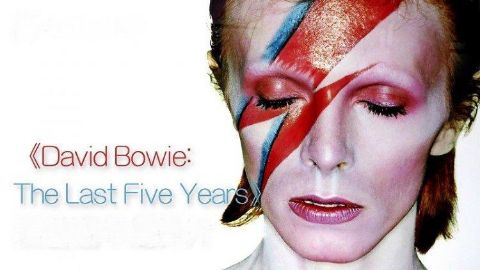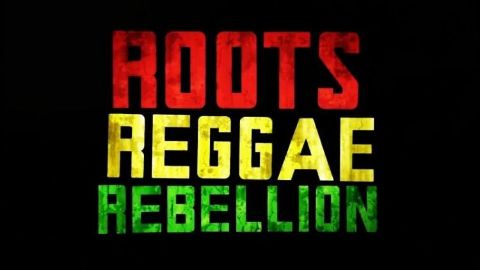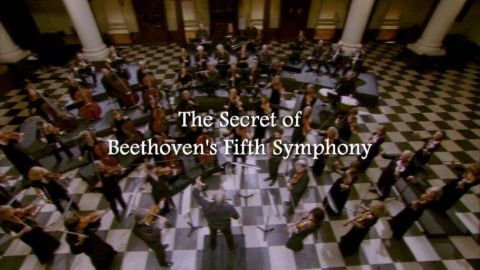MUSIC • 51 videos
Dirt roads. Pickup trucks. Hip-hop? As the borders around country music shift, who decides what defines the popular genre, and who gets to be a star?
From the waltz to voguing, dance crazes have connected people throughout history. But when a dance catches on, who gets the credit - and compensation?
The Korean Wave is taking the world by storm, and Korean Pop, or K-pop, is at the forefront. Krishnan Guru-Murthy goes inside South Korea's K-pop dance schools, investigating the hidden cost of becoming the next big idol. He learns how teenagers are crafted to be idols with relentless training regimes, scripted answers and picture-perfect looks, though just one per cent will 'make it big'.
2024 • Music
Tells the story of the Queen frontman's life and career, from the early days of the band to their show-stopping performance at Live Aid and their dominance of music charts around the world. From Killer Queen and Bohemian Rhapsody, through to The Show Must Go On, the film uncover the stories behind the songs through archive interviews with Freddie himself.
2020 • Music
'My personal lullaby for a frenetic world. A manifesto for a slower pace of existence' - Max Richter. Max Richter's Sleep is a meditative respite from the rush and chaos of modern life that studies a universal experience. This documentary film follows acclaimed composer and musician Max Richter and his creative partner, artist and Bafta-winning film-maker Yulia Mahr, as they navigate an ambitious performance of his celebrated eight-hour opus Sleep at an open-air concert in Los Angeles. Emmy-nominated director Natalie Johns weaves in Mahr's personal archive and performance footage from Berlin, Sydney and Paris to create a rich portrait of a shared artistic process, along with contributions that illuminate both the science and the story behind the work.
2020 • Music
Ritchie Blackmore is beyond doubt one of the all-time great guitar players. The Ritchie Blackmore Story traces the long and winding road of the guitar legend — from his early days as a session player (with legendary producer Joe Meek) and his early '60s combo the Outlaws up through his years guiding one of hard rock's finest bands, Deep Purple, the formation of Rainbow and into his recent work with Blackmore's Night. Ritchie has proven to be a master of the guitar across a multitude of styles. The 'man in black' helped invent neo-classical heavy metal with his medieval-oriented guitar solos. He gave the world perhaps the most played guitar riff ever with the opening notes to "Smoke on the Water." For the first time his story is told in this extraordinary rockumentary. "The Ritchie Blackmore Story" tells the career through some of it's historical performance and extensive specially recorded new interviews with Ritchie himself and many of his colleagues and admirers including: Brian May, Glenn Hughes, Lars Ulrich, Steve Lukather, Joe Satriani, the late Jon Lord, David Coverdale, Gene Simmons, Joe Lynn Turner, Steve Vai, Graham Bonnet and Ian Anderson. This is the definitive story of a true guitar legend.
2015 • Music
They defined music and popular culture like no other band ever will. But how did The Beatles make the journey from Merseyside teenagers to international pop stars in the 1960s? The Beatles: Made on Merseyside recounts how American rock ‘n’ roll and rhythm and blues dragged post-war Liverpool into one of the most vibrant music cities ever with the Mersey Sound. Featuring unique archive and revealing interviews from those involved in the early years of The Beatles in Liverpool and Hamburg, we discover the story of The Beatles’ previous band formations and why it took so long for them to achieve success. From school bands to colleges, Hamburg to The Cavern Club, The Beatles moved from skiffle to rock ‘n’ roll before creating their unique sound.
2019 • Music
In 1969, 500,000 people descended on a small field in a little-known town in upstate New York called Woodstock. The documentary that captured the iconic event, chronicled in unflinching detail this moment in history. But how was this groundbreaking film actually made?
2019 • Music
Celebrate the 50th anniversary of the concert that became a touchstone for a generation. This film brings the three-day concert to life through the voices of those who were present at what became the defining moment of the counterculture revolution. In August, 1969, half a million people from all walks of life and every corner of the country converged on a small dairy farm in upstate New York. They came to hear the concert of their lives, but most experienced something far more profound.
American Experience • 2019 • Music
A chance to see the BBC Symphony Orchestra perform British composer Gustav Holst's The Planets at the London Barbican, in a concert from last September timed to celebrate the centenary of the premiere. But there's a special scientific twist to this concert, as before each movement, Professor Brian Cox discusses what modern science reveals about each of the planets.
2019 • Music
Lenny Kaye, Patti Smith’s guitarist, explains how the quest for new guitar sounds has driven the history of popular music, from Les Paul’s first guitar to Bo Diddley’s tremolo, Duane Eddy’s whammy bar, Keith Richards’s fuzz pedal, The Who’s feedback, The Byrds’ 12-string, Hendrix’s wah-wah pedal, Uli Roth and Van Halen’s shredding, The Edge’s digital delay, Ry Cooder’s slide, and KT Tunstall and Ed Sheeran’s looper pedals. With Duane Eddy, Roger McGuinn, The Edge, Bonnie Raitt, Seasick Steve, KT Tunstall, Joe Bonamassa, Uli Roth, Vernon Reid, Heart’s Nancy Wilson, The Runaways’ Lita Ford and producer Shel Talmy.
S1E3 • Guitar, Drum and Bass • 2019 • Music
Tina Weymouth of Talking Heads and Tom Tom Club celebrates the extraordinary contribution of bass to popular music, tracing its progress from street-corner doo-wop and the overlooked ‘guy at the back’ in rock ‘n’ roll, via Paul McCartney, the anonymous James Jamerson and Carol Kaye - whose genius bass lines underpinned The Beatles, Motown and LA sound respectively - British jazzer Herbie Flowers’s immortal line in Walk on the Wild Side, the emergence of 70s funky bass stars Bootsy Collins and Chic’s Bernard Edwards, the driving lead bass of postpunk maverick Peter Hook in both Joy Division and New Order, through to the growth of bass culture in reggae, whose sound systems sparked whole new genres in drum and bass, grime and beyond. With Bootsy Collins, Dizzee Rascal, Ray Parker Jr, Nile Rodgers, Peter Hook, Carol Kaye, Herbie Flowers, Valerie Simpson, The Marcels’ Fred Jonson, DJ Aphrodite and Gail Ann Dorsey.
S1E2 • Guitar, Drum and Bass • 2019 • Music
Stewart Copeland explores the drums as the founding instrument of popular modern music. Beats that travelled from Africa via New Orleans and across the world are the consistent force behind musical evolution. Stewart plays with some of the most inspiring drummers of the last 50 years, including John Densmore of The Doors, Chad Smith of The Red Hot Chilli Peppers, Prince’s musical director Sheila E, New Order’s Stephen Morris and Foo Fighters’ Taylor Hawkins. He goes dancing in New Orleans, builds his own bass drum pedal and checks out hot new bands on Santa Monica beach.
S1E1 • Guitar, Drum and Bass • 2019 • Music
Behind-the-scenes archive documentary following Queen's Freddie Mercury, Brian May, Roger Taylor and John Deacon as they record their sixth album News of the World and embark on a groundbreaking tour of North America. By 1977, Queen had become a major headlining act in the UK, releasing chart-topping albums and singles as well as playing sell-out concerts in all the country's major venues. However, they were facing an increasingly hostile music press, who had a new favourite in punk and had turned against the elaborate, multi-layered recording techniques that had become the hallmark of the band's previous albums. But an unfazed Queen had their sights set on greater things. As the band announced plans to record their next album, the expectation was it would be another production extravaganza, but Freddie, Brian, Roger and John already had other ideas. News of the World showcased them at their most raw, simple and best, returning to their roots as a live act. With a self-imposed limit on studio time and produced entirely on their own for the first time, this stripped-back album took the fans and press by surprise and demonstrated Queen's ability to transcend fashions. It was to prove a seminal moment in the band's history. At the time, BBC music presenter Bob Harris was given exclusive and extensive access to the band to cover this period. Conducting insightful interviews with all four band members as well as filming them at work in the studio as they were planning and rehearsing their forthcoming North American tour, and then following them as they performed across the US, Bob captured a band attempting to replicate their huge domestic success on the global stage. Curiously, the documentary he set out to make was never completed, and the footage lay unused in the archive until now. To mark the 40th anniversary of the release of the News of the World album, the footage has now been carefully restored and revisited to compile this hour-long portrait of a group setting out to take the next step on their remarkable journey to becoming one of the biggest bands on the planet. Armed with an array of new songs, including the monster hits We Will Rock You and We Are the Champions, Queen dazzled the American audience and laid the foundations of a relationship that endures to this very day. Coming full circle, this film is bookended by footage shot in the summer of 2017 as Brian May and Roger Taylor took Queen back to the US with Adam Lambert as lead singer. Revisiting many of the cities they had performed in 40 years previously and including many of the songs from that 1977 album, they prove that despite the tragic loss of Freddie Mercury over 25 years ago, Queen can still rock the world.
2017 • Music
Documentary charting the life of Eric Clapton, widely renowned as one of the greatest performers of all time. But behind the scenes lay restlessness and tragedy. The insatiable search to grow his artistic voice left fans surprised as he constantly quit successful bands, from the groundbreaking Yardbirds to 60s supergroup Cream. His isolated pursuit of his craft, and fear of selling out, served as a catalyst for his evolution as an artist. Stretching from his traumatic childhood living in a 'house of secrets', to his long struggle with drugs and alcohol, and the tragic loss of his son in a heart-breaking accident, Eric Clapton always found an inner strength and healing in music. Told through his own words and songs, as well as those of his family, friends, musical collaborators, contemporaries and many heroes - including BB King, Jimi Hendrix and George Harrison.
2017 • Music
DJ and broadcaster Rita Ray travels to Mali in West Africa, home to a deep musical culture and ancient instruments that are the hallmark of their sound. Mali has produced more Grammy-winning artists than any other African country, and this well of talent has drawn in artists and producers from around the world to collaborate with the local musicians. Whilst the country has been rocked by Islamist insurgency, leading to a ban on music in some areas, Rita finds out how a traditional way of life and rich musical culture have endured.
3 • Africa: A Journey into Music • 2018 • Music
DJ and broadcaster Rita Ray travels to South Africa, home to distinctive vocal harmonies that have travelled all over the world. Visiting Johannesburg, Durban and Cape Town, she discovers the extraordinary songs and harmonies that have given this country a voice abroad. They have often carried messages about inequality and injustice at home, resulting in beautiful music with a real sense of purpose. South Africa is a diverse nation, and each tribal group has its own musical traditions.
2 • Africa: A Journey into Music • 2018 • Music
DJ and broadcaster Rita Ray travels to Nigeria, home of some of the most influential African music of the last 60 years. The country's extraordinary polyrhythms have powered highlife, funk and Afrobeat for decades, and can still be heard in modern pop music. Travelling to Lagos and beyond, Rita traces the importance of rhythm in Nigeria's music and discovers the many different musical styles it has created, from Yoruba juju music, to acoustic singer-songwriters and world-class pop.
1 • Africa: A Journey into Music • 2018 • Music
To mark the publication of Keith Richards' autobiography, Life, this Culture Show special looks at the life of the man with five strings and nine lives. In a candid interview he chats to Andrew Graham-Dixon about his childhood in Dartford, his passion for music and the decade that catapulted the Rolling Stones from back-room blues boys to one of the greatest rock 'n' roll bands in the world.
The Culture Show • 2010 • Music
Music promoter John Giddings takes us on an entertaining ride behind the stage lights to tell the story of how live performance has become a billion-pound industry. As the founder and promoter of the modern Isle of Wight festival and one of the world's biggest live promoters, John knows more than most how to put a show on the road. And how the world of live performance has changed. Where once bands would tour to promote an album, in the age of downloads and disappearing record sales, the live arena is a huge business. Bigger than ever before.
S1E2 • Hits Hype and Hustle: An Insiders Guide to the Music Business • 2018 • Music
In the first programme of the series, music agent Emma Banks looks at how the music business finds talent and creates superstars. Over 25 years as one of the top agents in the business, Emma has worked with some of the world's most famous artists, including Katy Perry, Kanye West and Red Hot Chili Peppers. She's seen first-hand the fine line between success and failure, following the careers of hundreds of acts - from geniuses who never quite made it to megastars who conquered the world.
S1E1 • Hits Hype and Hustle: An Insiders Guide to the Music Business • 2018 • Music
Bob Marley's musical (and cultural) shadow is so large that the man clearly needed an authoritative documentary portrait--and Marley steps in with all the right stuff to fill the role. Working with official rights to the music and access to Marley's family and friends, Oscar-winning documentarian Kevin Macdonald (One Day in September) creates a thorough account that hits the major points, not stinting on some of the less admirable aspects of Marley's life (including his brood of children fathered with women other than his patient wife, Rita, whose presence indicates just how much she puts Marley's legacy above his personal infidelities). Especially interesting is the sketch of Bob Marley's youth, as a mixed-race--and thus socially ostracized--kid from the village of Nine Mile who began to put together a reggae sound with a group of like-minded musicians in Jamaica in the late '50s and early '60s. That period comes to life, and the account of Marley's ascent, while familiar from such sagas, has its share of offbeat incidents. His death, at age 36 in 1981, does not dominate the movie, but Macdonald does a good job of getting that story laid out. In the meantime, the music and the concert footage are more than enough to justify the movie's existence, and Macdonald makes time to include thoughts about politics, ganja smoking, and Rastafarianism, too. If it's not the final word on Marley, it's an excellent start.
2012 • Music
The series concludes with Be My Baby, which reflects on the evolution of rock 'n' roll music and its impact in America, including Buddy Holly's tragic death in a plane crash in 1959 at the age of 22, the game-changing arrival of The Beatles in America in 1964, and everything in between. Philadelphia produced 'teen idols' like Fabian who were beamed around the country by the daily TV show Bandstand. Rock 'n' roll even fuelled the Motown sound in Detroit and soundtracked the sunshiny west coast dream from guitar instrumental groups like The Ventures to LA's emerging Beach Boys. In the early 60s, rock 'n' roll was birthing increasingly polished pop sounds across the States, but American teens seemed to have settled back into sensible young adulthood. Enter the long-haired boys from Liverpool, Newcastle and London.
S1E3 • Rock and Roll America • 2015 • Music
In episode two, Whole Lotta Shakin', the rock 'n' roll story continues with the boom in the sound across America and its move into mainstream culture thanks to seminal TV appearances from Elvis, who made his small-screen debut with a rendition of Heartbreak Hotel before his notoriously sexualised performance of Hound Dog that caused shockwaves across conservative America. The programme explores the media's failed attempts to suppress the genre before wholesome Buddy Holly calmed the waters, converting geeky looks into chart success, before scandal again in 1958 with Elvis's conscription to the army and Jerry Lee Lewis's career suicide when he married his 13-year-old cousin.
S1E2 • Rock and Roll America • 2015 • Music
Part one, Sweet Little Sixteen, focuses on the origins of the sound in 1950s America - a rhythm-driven mix of blues, boogie woogie and vocal harmony championed by young music pioneers such as Fats Domino and Little Richard, which was nurtured by small independent record labels and, pre-Civil Rights Act, drew young white and black kids together. This episode also discusses the start of Elvis Presley's career as a local singer in Memphis and examines the impact the film industry had on the movement. In particular, bad boy heartthrob Marlon Brando's iconic performance in 1953's The Wild One as the biker that ignited a rebellious spirit and style in teens across America, and 1955's Blackboard Jungle, which featured Bill Haley & His Comets' Rock Around The Clock, which went on to become the first rock 'n' roll number one and an anthem for the country's disaffected youth.
S1E1 • Rock and Roll America • 2015 • Music
This documentary brings Hollywood's premier composers together to give viewers a privileged look inside the musical challenges and creative secrecy of the world's most widely known music genre: the film score.
2016 • Music
John Eliot Gardiner goes in search of Bach the man and the musician. The famous portrait of Bach portrays a grumpy 62-year-old man in a wig and formal coat, yet his greatest works were composed 20 years earlier in an almost unrivalled blaze of creativity. We reveal a complex and passionate artist; a warm and convivial family man at the same time a rebellious spirit struggling with the hierarchies of state and church who wrote timeless music that is today known world-wide. Gardiner undertakes a 'Bach Tour' of Germany, and sifts the relatively few clues we have - some newly-found. Most of all, he uses the music to reveal the real Bach.
2013 • Music
Suzy Klein explores the use, abuse and manipulation of music in the Second World War - from swinging jazz to film soundtracks and from ballads to ballets. The war, she demonstrates, wasn't just a military fight but an ideological battle where both sides used music as a weapon to secure their vision for civilisation. Suzy reveals how the forces' sweetheart Vera Lynn was taken off air by the BBC for fear her sentimental songs undermined the British war effort. She reveals the war work of two British composers. Walton's Spitfire Prelude became the archetype for a particularly British form of patriotic music. By contrast, Tippett was sent to prison for being a conscientious objector, but his anti-war oratorio A Child of Our Time was showcased at the Royal Albert Hall. Suzy examines Olivier Messiaen's haunting Quartet for the End of Time, written in a POW camp. At Auschwitz, Suzy reveals how music was co-opted to serve the Nazis' evil purposes.
S1E3 • Tunes for Tyrants • 2017 • Music
Suzy Klein reaches the 1930s, when the totalitarian dictators sought to use and abuse music for ideological ends. Suzy looks at the lives of Richard Strauss, Dmitri Shostakovich and Sergei Prokofiev, who produced some of the 20th-century's best-loved music whilst working for Hitler and Stalin. The political message of Peter and the Wolf is revealed as well as the secret code hidden in Shostakovich's quartets and Strauss's personal reasons for trying to please the Nazis. Suzy also uncovers why Hitler adored Wagner but banned Mendelssohn's Wedding March; how Stalin used music to subtly infiltrate minds; and why Carl Orff's Carmina Burana, a Nazi favourite, appeals to our most primitive senses. Suzy also raises some intriguing questions: Can we pin meaning onto music? What are the moral responsibilities of artists? And did the violence and tyranny of those regimes leave an indelible stain on the music they produced?
S1E2 • Tunes for Tyrants • 2017 • Music
Suzy Klein takes us back to the volatile years following the Russian Revolution and World War I, when music was seen as a tool to change society. Suzy explores the gender-bending cabarets of 1920s Berlin and smashes a piano in the spirit of the Bolshevik revolution. She also reveals why one orchestra decided to work without a conductor, uncovers the dark politics behind Mack the Knife and probes the satirical songs which tried to puncture the rise of the Nazis. Suzy's musical stories are brought to life with the help of the BBC National Orchestra of Wales and its Chorus, as well as solo performers. This was a golden age for music, and its jazz, popular songs, experimental symphonies and classics like Rachmaninoff all provoke debate - what kind of culture do we want? Is music for the elite or for the people? Was this a new age of liberal freedom to be relished - or were we hurtling towards the apocalypse?
S1E1 • Tunes for Tyrants • 2017 • Music
A journey into the BBC archives unearthing glorious performances and candid interviews from the golden age of jazz. Featuring some of the greatest names in American music, including the godfather of New Orleans jazz Louis Armstrong, the King of Swing Count Basie, Duke Ellington, Oscar Peterson, Dizzy Gillespie and Ella Fitzgerald. Broadcasted as part of the Old Masters, Rising Stars: Jazz On BBC Four season, this film unlocks the BBC archives to explore the words and music of some of the greatest names in jazz. The BBC soon moved on from Lord Reith's proclamation, made in the 1930s, that jazz was "a filthy product of modernity", and invited some of the legends from the golden age of American jazz to perform and talk on British television. This film is a series of revealing portraits, from Louis Armstrong, jazz's first great soloist and global ambassador, to Duke Ellington, the ever-suave bandleader and composer who brought a new sophistication and ambition to the music. Count Basie is sheer swing, Dizzy Gillespie provoked a musical revolution with bebop, and Ella Fitzgerald is just incomparable. Through long-forgotten archive and specially shot interviews, Jazz Legends In Their Own Words tells the story of an art form that has been called "America's gift to the world".
2014 • Music
In the 1970s, America was one nation under a groove as an irresistible new style of music took hold of the country - funk. The music burst out of the black community at a time of self-discovery, struggle and social change. Funk reflected all of that. It has produced some of the most famous, eccentric and best-loved acts in the world - James Brown, Sly & the Family Stone, George Clinton's Funkadelic and Parliament, Kool & the Gang and Earth, Wind & Fire. During the 1970s this fun, futuristic and freaky music changed the streets of America with its outrageous fashion, space-age vision and streetwise slang. But more than that, funk was a celebration of being black, providing a platform for a new philosophy, belief system and lifestyle that was able to unite young black Americans into taking pride in who they were. Today, like blues and jazz, it is looked on as one of the great American musical cultures, its rhythms and hooks reverberating throughout popular music. Without it hip-hop wouldn't have happened. Dance music would have no groove. This documentary tells that story, exploring the music and artists who created a positive soundtrack at a negative time for African-Americans. Includes new interviews with George Clinton, Sly & the Family Stone, Earth, Wind & Fire, Kool & the Gang, War, Cameo, Ray Parker Jnr and trombonist Fred Wesley.
2014 • Music
Asif Kapadia's poignant and critically acclaimed documentary portrait of singer-songwriter Amy Winehouse, the English soul, jazz and R 'n' B phenomenon who died tragically before her time. Kapadia traces her volatile life and artistic success over the 13 years preceding her death from alcohol poisoning on 23rd July 2011, aged just 27. The documentary tells Amy's story via her music and autobiographical song lyrics, video footage shot by her friends and family, archive clips from TV appearances, plus voiceover interviews with people who were personally and professionally close to her. But, as the film progresses, the hope and promise of her early career is steadily undermined by the self-destructive chaos of alcohol and drug addiction and the pressures of a life lived under the intense focus of global media attention.
2016 • Music
There was nothing predictable about David Bowie. Everything was designed to intrigue, to challenge, to defy all expectations. But perhaps no period in David Bowie's extraordinary career raised more fascination, more surprise, and more questions than the last five years. This is an intimate portrait of one of the defining artists of the twentieth and early twenty first centuries, told by the people who knew him best - his friends and artistic collaborators. This film takes a detailed look at Bowie's last albums, The Next Day and Blackstar, and his play Lazarus. In his final five years, Bowie not only began producing music again, but returned to the core and defining themes of his career. This film explores how Bowie was a far more consistent artist than many interpretations of his career would have us believe. It traces the core themes from his final works and relates them to his incredible back catalogue. His urge to communicate feelings of spirituality, alienation and fame underpin his greatest works from the 1960s to 2016. This is what lies at the heart of his success and appeal - music that deals with what it means to be human in a way that goes far beyond the normal palette of a rock star. The film is not a comprehensive overview of his entire career, but an in-depth exploration of pivotal moments that show how the themes, the narrative and the approach is consistent - it is simply the palette that changes. The film includes every key member of the Next Day band, the Blackstar band and those who worked with him on the stage play Lazarus. In addition, old friends and colleagues are on hand to explore how the work of the last five years relates to Bowie's back catalogue. And, as in David Bowie: Five Years, there is a wealth of unseen and rare archive footage.
2017 • Music
In the 1970s, Jamaica came alive to the sounds of roots reggae. British rapper, poet and political commentator Akala tells the story of this golden period in the island's musical history, a time when a small group of musicians took songs of Rastafari, revolution and hope to the international stage.
2016 • Music
Ian Hislop and John Eliot Gardiner reveal the story behind Beethoven's Fifth Symphony. Described as the 'greatest 'great' piece ever written,' its opening notes are among the most recognisable in history. But no one really knows what Beethoven was trying to express with this piece. The traditional wisdom is that he is railing against fate and his deafness. But John Eliot believes the music expresses Beethoven's belief in the French Revolution. This is turbulent music from a turbulent man living in a turbulent age. John Eliot and Ian Hislop bring to life the exciting and dangerous times that shaped Beethoven personally and creatively.
2016 • Music
Composer and musician Neil Brand's series exploring the alchemy that creates great songs reaches the modern era, when a revolution in how they were made took place. From the synthesisers of symphonic rock to the mixes of disco and the samplings of hip hop, music was transformed by the arrival of digital technology and the computer, which gave some songwriters more power but others much less. Along the way Neil talks synths with Rick Wakeman from Yes, samples with Public Enemy's Hank Shocklee, uncovers the surprising lo-fi origins of Bruce Springsteen's stadium-busting Born in the USA, and finds out how Cher changed the sound of her voice on the smash hit Believe.
S1E3 • Sound of Song • 2015 • Music
A film about the sound of Australian rock and the emergence of one of the world's greatest rock bands - AC/DC, or Acca Dacca as they are known in Australia, and the legendary music company, Albert Music (Alberts) that helped launched them on to the global rock scene. Through the 1960s, 70s and 80s, Alberts created a house of hits in Australia that literally changed the sound of Australian popular music. It started with the Easybeats and their international hit Friday On My Mind back in the 60s. In the 1970s when Australia was in the midst of a deep recession, a rough and ready pub rock sound emerged, characterised by bands like Rose Tattoo who were promoted by family-run company, Alberts. The raw power and fat guitar sound that characterised Aussie rock was pioneered by the Alberts and took Australia and the world by storm.
2016 • Music
Kurt Cobain, legendary lead singer, guitarist and songwriter of Nirvana, “the flagship band of Generation X,” remains an object of reverence and fascination for music fans around the world. His story is told for the first time in KURT COBAIN: MONTAGE OF HECK
2015 • Music
It was 1985. Guns N' Roses were soon to be known as the last mammoth rock entity to come out of LA after selling over 100 million albums. Jon Brewer brings alive never-before-seen video footage of Guns N' Roses in their earliest days as a fledgling band, filmed and meticulously archived over the years by their close friend. They became known as 'the most dangerous band in the world' and retained the title for reasons this film portrays, via interviews with band members and those who were there on, and off, tour. Venture down seedy Sunset Strip to the Whiskey, the Rainbow and the Roxy, all known as 'the Jungle'.
2016 • Music
Filmed over the course of four years, award-winning director Phil Grabsky follows one of the world's greatest pianists, Leif Ove Andsnes, as he attempts, in a series of sold-out worldwide performances, to interpret one of the greatest sets of works for piano ever written - Beethoven's five piano concertos.
2015 • Music
Film about the pop culture phenomenon that is Daft Punk, the duo with 12 million albums sold worldwide and seven Grammy awards. Throughout their career Thomas Bangalter and Guy-Manuel de Homem-Christo have always resisted compromise and the established codes of show business. They have remained determined to maintain control of every link in the chain of their creative process. In the era of globalisation and social networks, they rarely speak in public and neither do they show their faces on TV. This documentary explores this unprecedented cultural revolution, revealing two artists on a permanent quest for creativity, independence and freedom. Between fiction and reality, magic and secret, future and reinvention, theatricality and humility, The Robots have built a unique world. The film combines rare archive footage as well as exclusive interviews with their closest collaborators who talk about their work with Daft Punk, including Pharrell Williams, Giorgio Moroder, Nile Rodgers and Michel Gondry.
2016 • Music
Tom Service plunges into the life and times of Mozart to try and rediscover the greatness and humanity of the living man in his moment.
In standard notation, rhythm is indicated on a musical bar line. But there are other ways to visualize rhythm that can be more intuitive. John Varney describes the ‘wheel method’ of tracing rhythm and uses it to take us on a musical journey around the world.
How many times does the chorus repeat in your favorite song? How many times have you listened to that chorus? Repetition in music isn’t just a feature of Western pop songs, either; it’s a global phenomenon. Why? Elizabeth Hellmuth Margulis walks us through the basic principles of the ‘exposure effect,’ detailing how repetition invites us into music as active participants, rather than passive listeners.
How is it that Beethoven, who is celebrated as one of the most significant composers of all time, wrote many of his most beloved songs while going deaf?
The Distortion of Sound is a documentary about the decline of sound quality and how technology has changed the way we listen to music. It will open your ears and inspire you to reach for richer, more soul-stirring musical experiences.
When you listen to music, multiple areas of your brain become engaged and active. But when you actually play an instrument, that activity becomes more like a full-body brain workout. What's going on? Anita Collins explains the fireworks that go off in musicians' brains when they play, and examines some of the long-term positive effects of this mental workout.
We don't know much about the human brain on music. Do people instinctively know the sound patterns of the pentatonic scale? Is there a base level of musical knowledge in all of us, just waiting to be tapped? Or is the pentatonic scale simply so common in Western music that it has become ingrained in all of our minds? Improvisational genius Bobby McFerrin uses audience participation to demonstrate the power of the pentatonic scale - or at least the audience's familiarity with it.
2011 • Music




